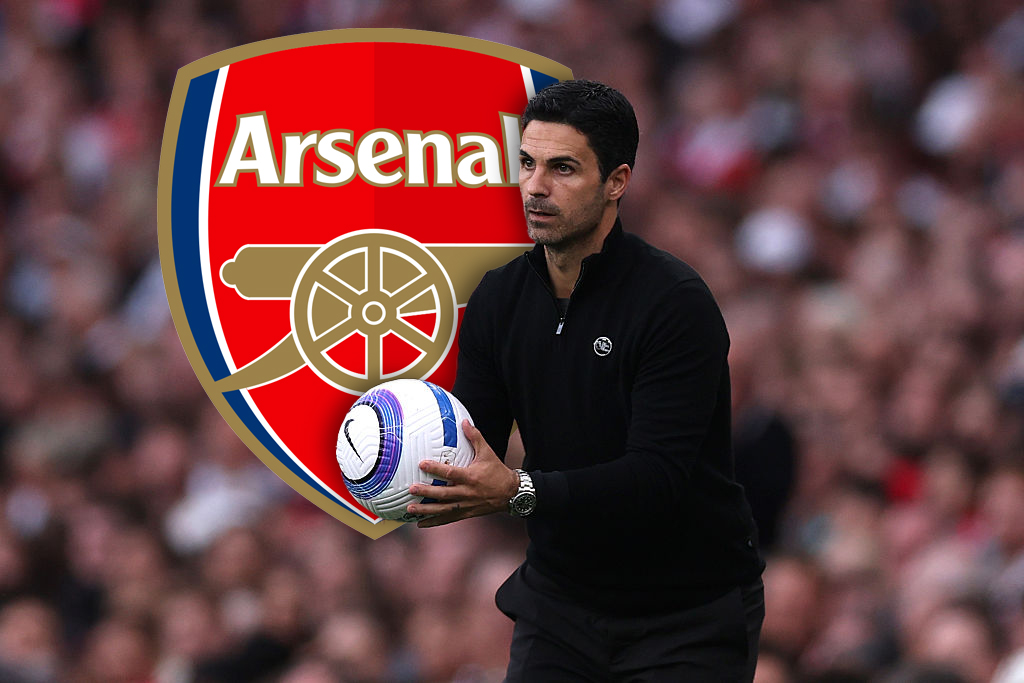Apples, bungalows and copper mines: England in Chile '62
England’s Chile 62 goalkeeper Alan Hodgkinson tells Richard Edwards about the Three Lions’ last World Cup in South America...
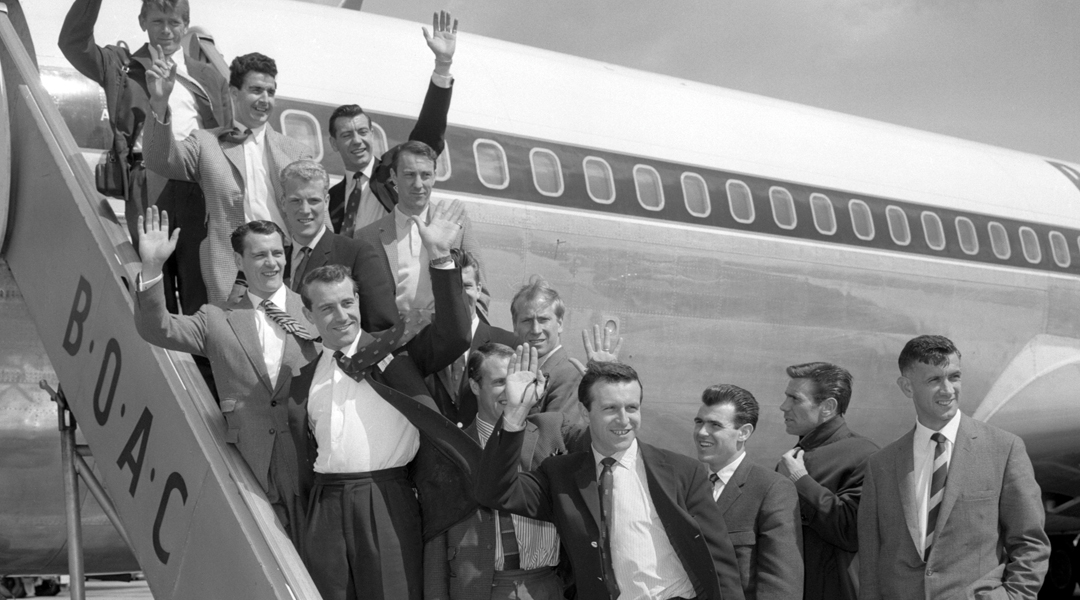
The current England vintage will want for nothing in Brazil in the coming weeks but on the country’s last World Cup adventure in South America, Alan Hodgkinson – one of two goalkeepers in Walter Winterbottom’s squad – would have killed for just a single bite of a team-mate’s apple.
“We were all in little bungalows – not in the flash hotels they are now,” he tells FourFourTwo. “I was sharing with Don Howe and I’ll always remember that we got dropped off at these different bungalows.
“George Eastham was dropped off at the first one and he came back to get one of his cases holding the biggest apple you had ever seen. It looked amazing. Everyone was starving and he stood there, with one foot on the bus taking huge bites of this big gorgeous apple. Everybody was ravishingly hungry and he was just laughing his socks off.”
The year was 1962, and Hodgkinson – who would later become one of the world’s most respected goalkeeping coaches – and his team-mates were preparing for just England’s fourth appearance at a World Cup finals.
The previous three had made England’s 2010 South Africa campaign look like a triumph. In their last trip to South America, for the 1950 World Cup in Brazil, they had contrived to lose to a team of rank amateurs from the USA, while things had barely improved four years later in Switzerland and in 1958 in Sweden.
With a young side, which included the likes of Bobby Moore, Bobby Charlton, Bobby Robson and the precocious Jimmy Greaves, Winterbottom’s men travelled to Chile with high hopes of improving their dismal World Cup record.
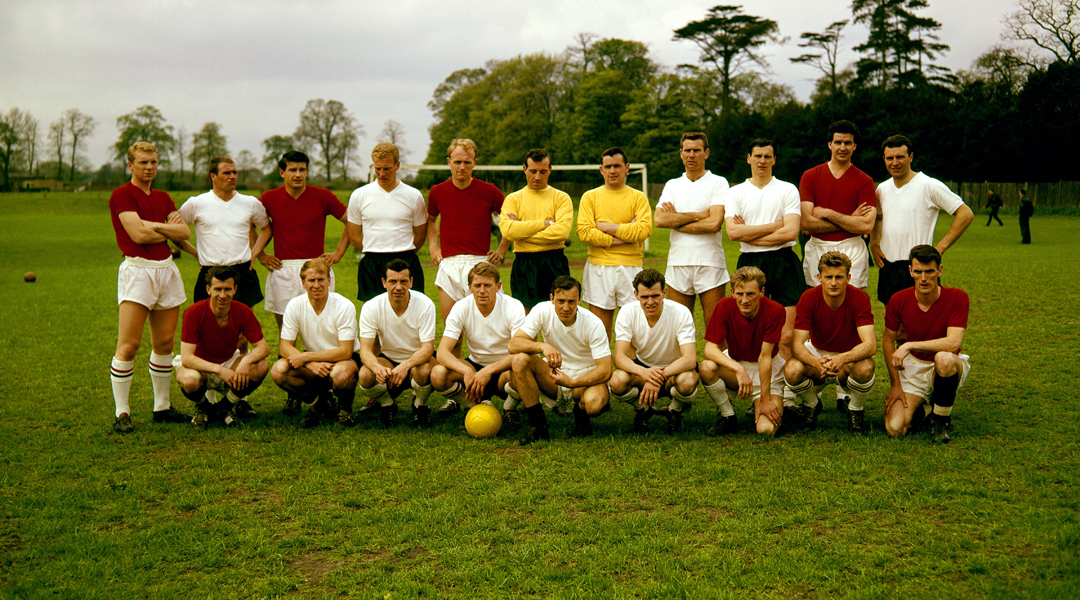
On their arrival in South America, though, they had rather more prosaic matters on their mind – like trying to find the place they were supposed to be staying.
Get FourFourTwo Newsletter
The best features, fun and footballing quizzes, straight to your inbox every week.
“We were miles from anywhere,” says Hodgkinson with a chuckle. “We stayed up in the mountains at an American copper company. We would have to come down on a train to train and play. We were up there for the rest of the time so it was a really different experience.
“Funnily enough, during the tournament, immediately after the Chile and Italy game ended in a mass free-for-all (the infamous Battle of Santiago), the Italians came up to our camp to get out of Santiago and to try and stay out of trouble.
“They wanted a bit of peace because god knows what would have happened to them if they’d been spotted in the capital.”
...and two nylon shirts
England, in contrast, were mobbed by well-wishers wherever they went, with everyone wanting to catch a glimpse of Charlton, Greaves and Haynes, the England captain.
But despite the attention, Hodgkinson tells FFT that it felt like ‘just another tournament’.
“There was nothing different really,” he says. “I had played in all the qualifying games and playing in the World Cup finals was just the same – you got a suit, a tie, two nylon shirts, that’s what you got for travelling. That’s what you got from the FA, that’s as good as it got.”
England had breezed through a qualifying group containing Portugal and Luxembourg to reach the finals but travelled without the huge levels of expectation that they would experience on home soil four years later.
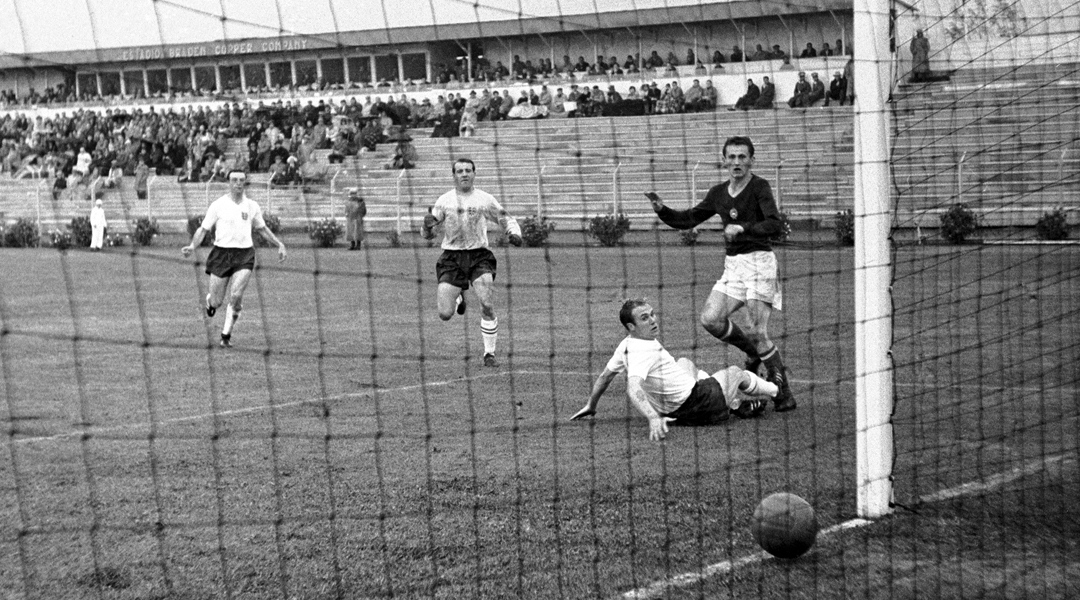
“For me it was a quiet World Cup,” says Hodgkinson. “We had a few friendly matches and off we went. There was no ‘we’re going to win the World Cup’ and all that. Nothing was made of the team really. It was just seen as another tournament by the people back home and even the press.
“The journalists and the papers never over-indulged and they certainly never criticised the manager. In fact, looking back, there weren’t that many journalists in the travelling party, most of them had stayed at home.”
England were unfortunate enough to come up against Hungary – one of the pre-tournament favourites – in their opening game in Rancagua. Under sullen South American skies in front of a crowd of just 7,000, England dominated for long periods but eventually fell to a 2-1 defeat as goals from Lajos Tichy and Florian Albert cancelled out Ron Flowers’ 60th-minute penalty.
In an echo of the World Cups that would follow, the Special Correspondent of The Times wrote: “Both sides abandoned wide areas of midfield with four-two-four formations, but England persisted in playing close on a ground more suited to driving football, and there were many inaccuracies in their passing.”
The wily Argentinians
Next up was the equally daunting prospect of Argentina.
“Walter sat us down and said ‘lads, be careful what you’re doing because these guys are going to dive and get fouls,” says Hodgkinson. “And Walter was right because that’s what they did all the time.”
In what remains one of England’s finest World Cup results, though, the antics of the Argentinians weren’t enough to derail mountain dwellers, as goals from Flowers (another penalty), Charlton and a 22-year-old Jimmy Greaves secured a 3-1 win that put the quarter-finals within reach.
“The last game was against Bulgaria but it certainly didn’t capture the imagination,” says Hodkinson. “The crowd was absolutely tiny, you could hear every word that was said on the pitch.”
The majority of them were probably quite colourful as England laboured to a 0-0 draw. There was even a suspicion that the Bulgarians were doing England a favour to deny Argentina a place in the last eight.
“The Bulgarians had memories of brutal treatment by Argentina in their first match, and did not want them to quality,” The Times reported. “The public, heartily displeased, hooted both teams.”
Up next: world champions Brazil
England progressed on goal average, setting up a quarter-final against Brazil in Vina Del Mar – and a match which had more than a little in common with the pair’s last eight clash in Shizuoka forty years later.
“We qualified and moved from up in the mountains to the seaside,” says Hodgkinson. “I remember being sat in the stands and having (an injured) Pele just to the side of us.”
A Pele-less Brazil took the lead through Garrincha on 32 minutes but an equaliser from Gerry Hitchens meant England, as in 2002, went in level at half-time.
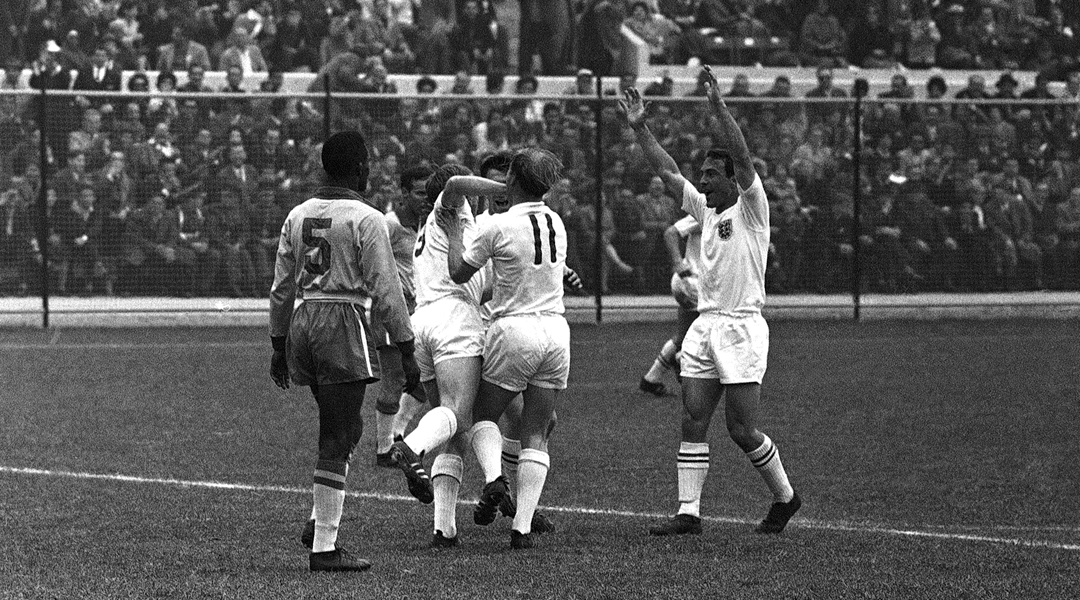
A Brazilian masterclass in the second half, though, did for the English. First Vava headed home a rebound from a free-kick and then Garrincha followed that with a stunning swerving strike that set-up a semi-final for the South Americans against the hosts.
“We all thought we could get the semi-finals but it never materialised. They played superbly in the second half, Garrincha was just incredible, it was like he had the ball on a piece of string.
“I played with Stanley Matthews when I first got into the England side. He would go up to the full-back and then change his pace when the defender was about to put in a tackle. Like that, woosh, he was gone. Garrincha was exactly the same."
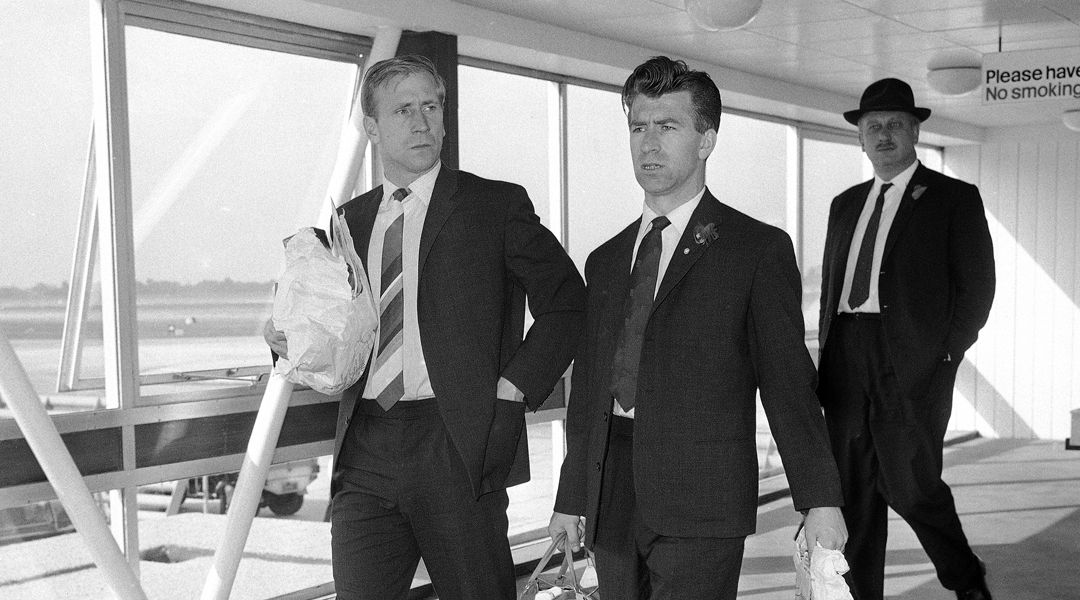
“At the final whistle there was no great disappointment, no histrionics, we just packed up and went home – the northern lads on one plane and the southern lads on another. When we got home there was no criticism, no-one calling for the manager’s head, no headlines calling us a World Cup disgrace.”
The press are unlikely to be so forgiving should Roy Hodgson’s England flunk their examination in Brazil.
“When I look at the World Cup it’s the be-all and end-all of football now. You only have to look at the coverage and the sponsorship deals they get now. Back then, that didn’t interest us. You never discussed what you got or what you were going to get if you won it, all you got was your £15 a match fee. There was no million pound bonus for us. My enjoyment was being involved in it all over the world and I’m more than proud of that.”
